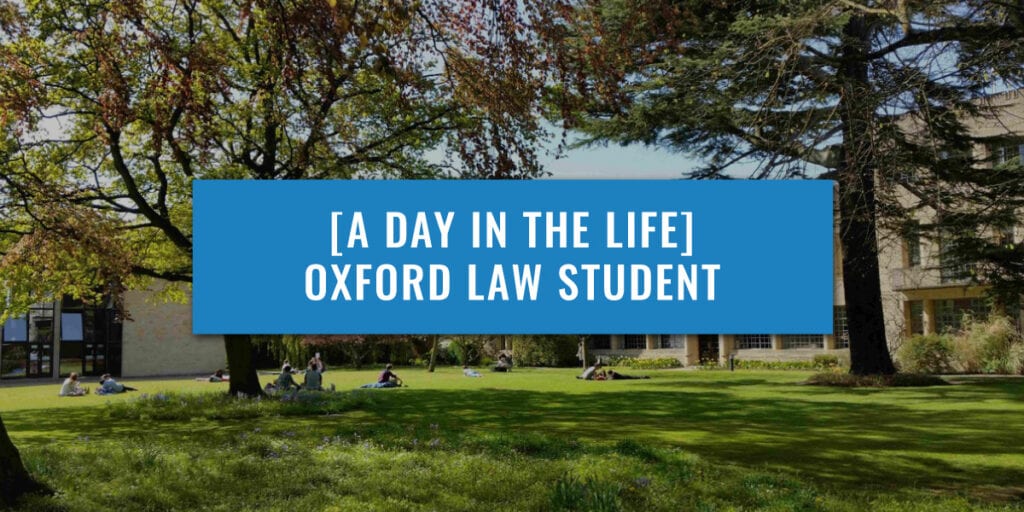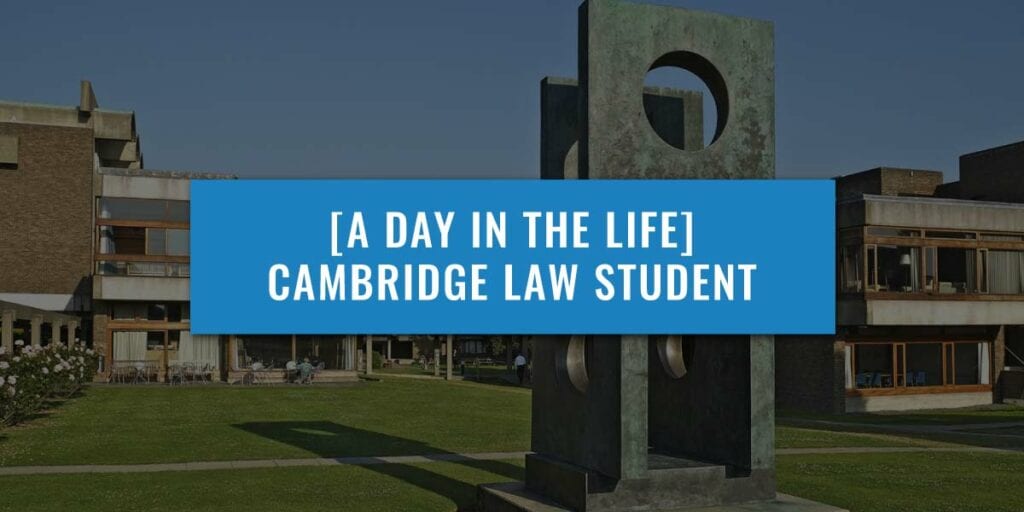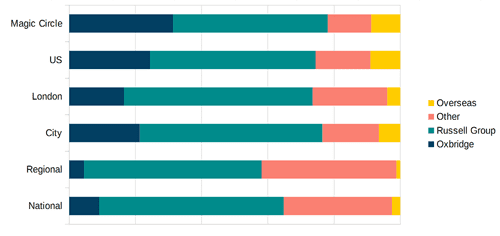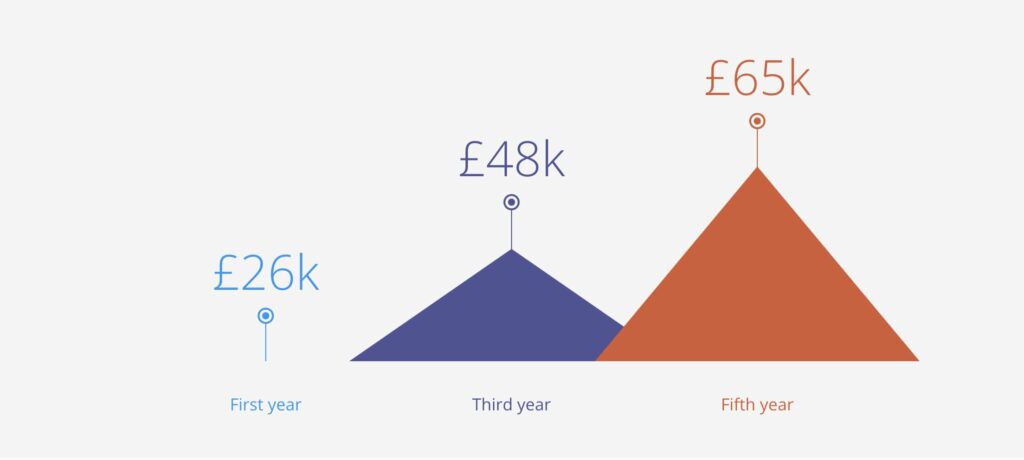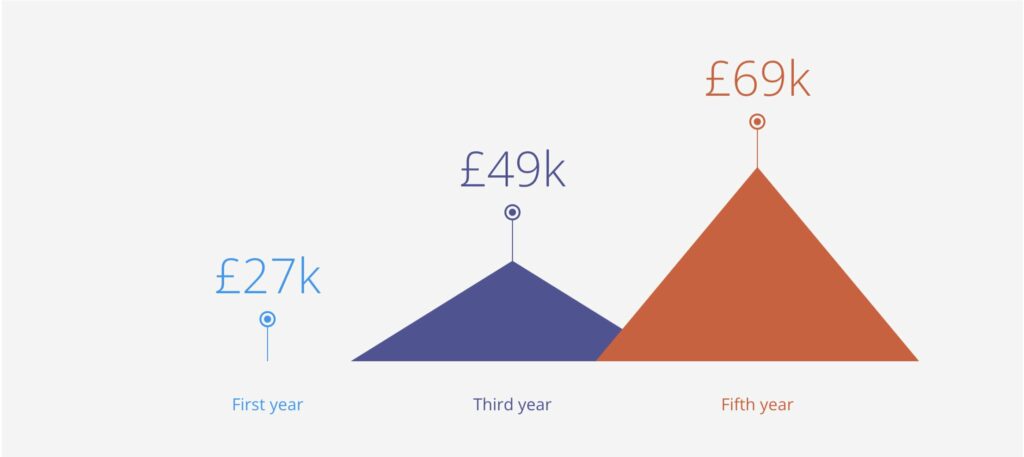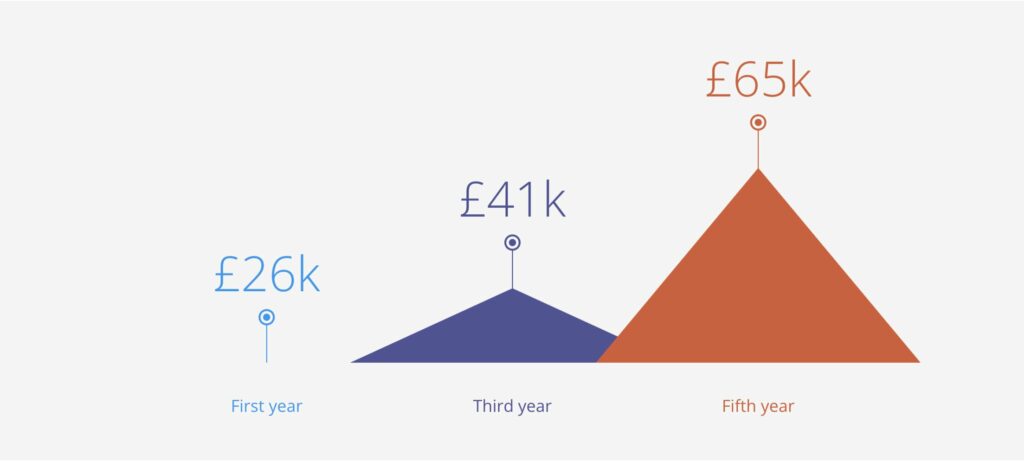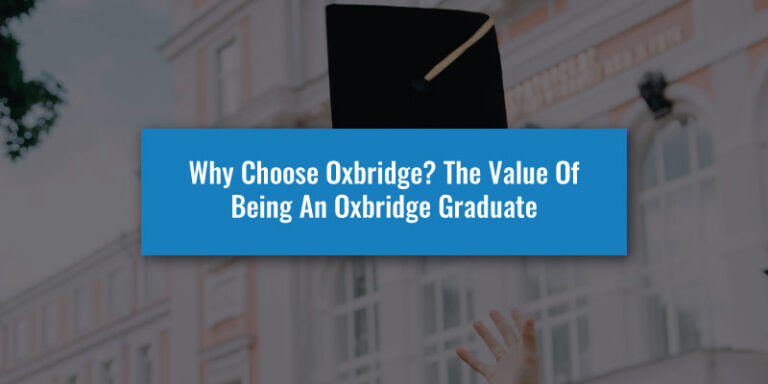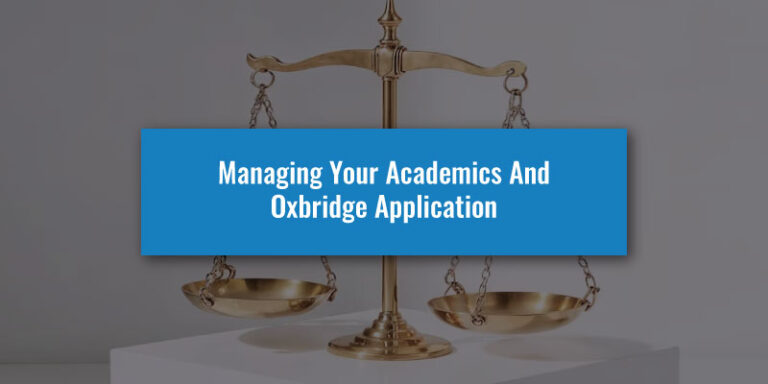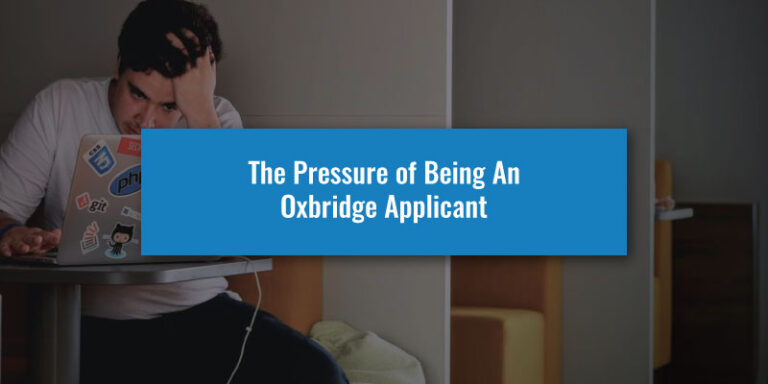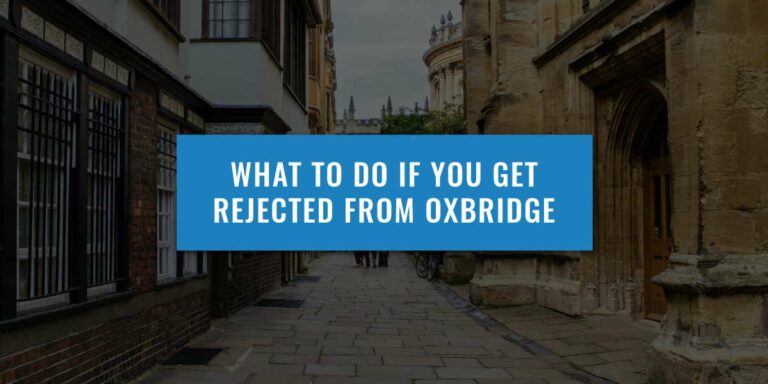When applying for Law at a top university, there are several factors to consider.
One of those being the route of Oxbridge or Non-Oxbridge.
But what is the difference between the Law degrees at Oxbridge and non-Oxbridge universities?
Oxbridge Specific Information
The crucial difference between Oxbridge and non-Oxbridge Law Schools is the UCAS deadline.
For Oxbridge, the deadline to get your application submitted is 6 PM on October 15th. If you are only applying to non-Oxbridge Law Schools you have until 14th January.
However, if you are applying to both Oxbridge and non-Oxbridge Law Schools, you will have to meet the October deadline.
Earn Oxbridge Law success by starting your preparation early.
Writing the perfect Personal Statement, scoring highly on the LNAT and interviewing like a pro is how you get your dream Oxbridge Law offer.
Discover our Law Full-Blue Programme for comprehensive admissions support by clicking the button below to enrol and triple your chances of success.
The LNAT
Ten of the Law Schools in the UK require applicants to sit the LNAT as part of their application process.
Cambridge has recently reverted to using the LNAT after having their own Admissions Test, the CLT, the past few years. Anyone applying for Cambridge and LNAT universities will only have one Admissions Test to prepare for.
How each university uses the LNAT differs, so it is helpful to be aware of what they expect to ensure that you meet the criteria they set.
If you are applying to Oxbridge, you will have to have sat the LNAT before or on the 15th October application deadline. For the non-Oxbridge Law Schools, you will have to sit the LNAT before or on the 26th January – though some institutions have different deadlines, so make sure to check them when booking.
Access "The Big Book Of Oxbridge Applications" For FREE
Are you set on applying to Law at Oxford or Cambridge? Learn everything you need to know about the difficult application process in The Big Book Of Oxbridge Applications, available for free now! Through over 350 pages, you will find:
- Proven A-Level study techniques
- 28 example Oxbridge Personal Statements
- Over 40 admissions test practice questions
- Interviews with Oxbridge students and graduates
- Additional downloadable resources
Fill in your details below to claim your digital copy today!
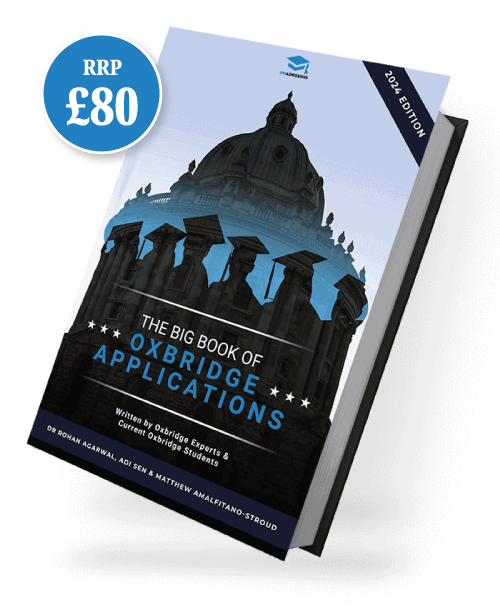
Oxford and Cambridge Offer a BA not an LLB
Contrary to other universities in the UK, you’ll get a Bachelor of Arts with a Law focus when you graduate from Oxbridge.
The BA Law for both Oxford and Cambridge is considered a qualifying degree, so you’ll be able to proceed to the vocational stage of your training in Law without delays. This is the second stage to becoming a solicitor or barrister in the UK, so doing a BA at Oxbridge will be the same (timewise) as an LLB at any other UK university.
Oxbridge have shorter terms
Unlike other UK universities with terms lasting from 10 to 14 weeks, terms at Oxbridge are significantly shorter. You’ll attend classes eight weeks at a time, and even though you’ll be very busy during this time, you can use your breaks to catch up on reading.
This can be ideal for a demanding course like Law if you’re looking for intensive studying for shorter periods. If you’re the type of student who works better under pressure and is well organised, this might be the type of timetable you’ll enjoy.
You can check some of our ‘Day in the Life’ articles below to get insight into how the shorter terms work.
Law firms have a preference for oxbridge graduates
As unfair as this might seem, Law firms do have a preference for specific universities. Usually, when you’re applying for a job, you might find that in addition to wanting a particular grade – a first-class or 2:1 most of the time. Companies such as Allen & Overy, Clifford Chance, and Slaughter & May might require a degree from a specific university.
If your ambition is to work for one of the companies within the ‘Magic and Silver Circle’, attending Oxbridge or a Russell Group university is a must.
Research by Chambers Student found that law firms prefer Oxbridge graduates, and this has been the case for years. So, a good piece of advice would be for you to investigate graduate prospects for your university choices.
Graduate Prospects
Law graduates tend to go into the legal industry, and they usually take similar routes. Jobs are highly competitive, but starting salaries are good and high fliers can earn serious money – starting on over £24,000 in London on average.
Some careers, especially as barristers, can take a while to get into, and the industry is constantly evolving.
If you want to go into work, then many Law graduates take trainee or paralegal roles, and some do leave Law although, often for jobs in management, finance and the police force.
A small proportion of Law graduates also move into another field of study. Management, accountancy, and teaching are all popular for these career changers.
University of Oxford
Looking at Oxford graduates six months after graduating gives us a clear understanding of what they go on to do.
The average annual salary of the graduates is £22,915, with 97% of graduates employed or in further education. Of those in employment, 63% were in a role where a degree was essential or beneficial.
The top job areas of the graduates tend to be legal professionals (19%), legal associate professionals (17%), and teaching and educational professionals (15%).
From the chart above, we can see the median annual earnings of those who have graduated from Oxford. After their first year of employment, the median earnings tend to be around £26,000. In their third year of employment, this has gone up to £48,000, before reaching £65,000 in their fifth year of work.
University of Cambridge
If we move on to look at Cambridge, we can start seeing this preference towards Oxbridge graduates demonstrated by Law firms.
The average annual salary for graduates is £24,000, with 98% of graduates employed or further education. Of those in employment, 70% were in a role where a degree was essential or beneficial.
The top areas where graduates found jobs was legal associate professionals (14%), teaching and educational professionals (12%), and legal professionals (8%).
From the chart above, we can see the median annual earnings of those who have graduated from Cambridge. After their first year of employment, the median earnings tend to be around £27,000. In their third year, this has gone up to £49,000, before reaching £69,000 in their fifth year of work.
University College London
Comparing these with UCL, which has been ranked third in the UK for Law by The Complete University Guide and The Guardian – and second by Times Higher Education, we can see the difference between Oxbridge and non-Oxbridge graduates.
The average annual salary for graduates six months after leaving UCL is similar to Oxford’s, sitting at around £22,000. Of the graduates, 94% find themselves in employment or further education. Of those in work, 69% are employed in a role where a degree was essential or beneficial.
The areas that graduates find themselves working in include legal associate professionals (38%), legal professionals (7%), and protective service occupations (7%).
From the chart above, we can see the median annual earnings of those who have graduated from UCL. After their first year of employment, the median earnings tend to be around £26,000. In their third year, this has gone up to £41,000, before reaching £65,000 in their fifth year of work.
choosing between Oxbridge and Non-Oxbridge law
The points made above should help you form an opinion on whether Oxbridge or non-Oxbridge is suited for you.
If you are considering applying for Law at Oxbridge, your main takeaway should be that you need to start your preparations as early as possible.
Make sure to keep in mind graduate prospects. If you are indecisive about which university to attend, remember that for very competitive industries such as Law, having a degree from a specific university might help you in the long run.
If you are still undecided as to which university you wish to apply for, do not rush into a decision and carefully consider your options and what has drawn you to them in the first place.
Aiming for a career in Law after you graduate? We’ll help you secure your dream Law offer first.
Applying to Oxbridge is immensely competitive, and you must give yourself the best chance of success. We help you craft the perfect Personal Statement, achieve a highly competitive Admissions Test score and teach you how to Interview effectively – covering all areas of your Oxbridge application.
Discover our Oxbridge Law Full-Blue Programme now or book a free consultation with our admissions team.

